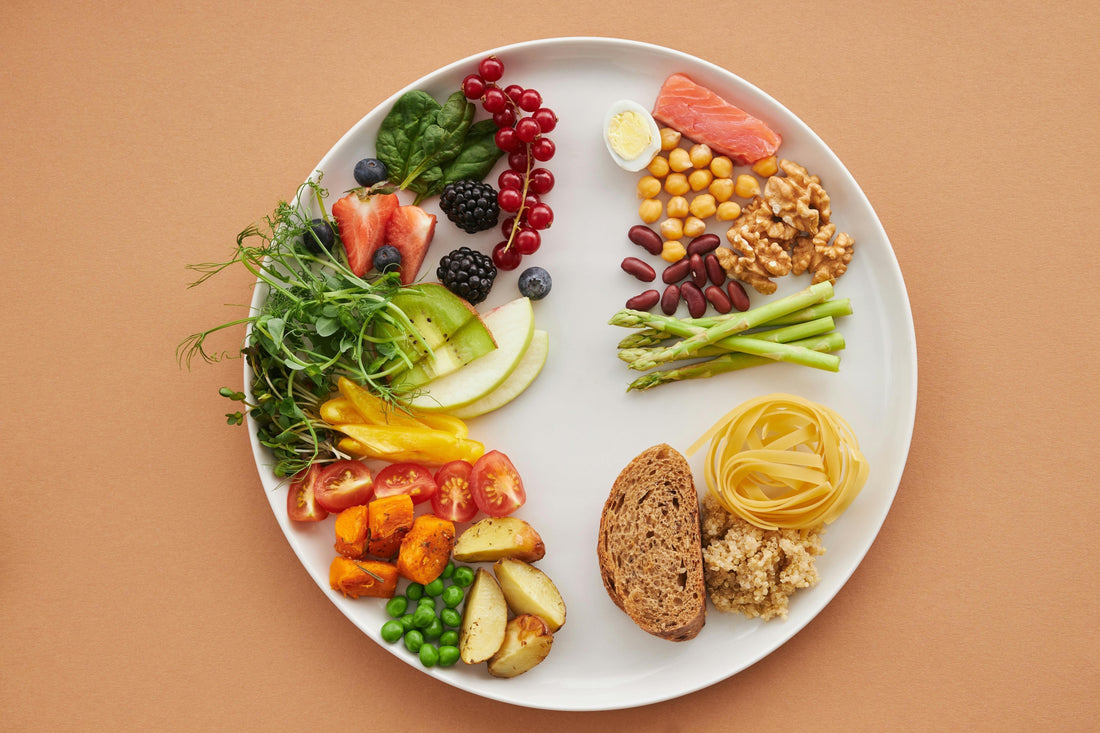
How to support your recovery through nutrition
Post-Pregnancy Nutrition: What You Need to Know to Support Recovery
Bringing new life into the world is an extraordinary experience, so it’s no surprise it takes a huge amount of energy and strength from your body. The journey through pregnancy and childbirth is transformative, leaving your body in need of rest, attention and support as it recovers. Post-pregnancy nutrition plays a critical role in this healing process, helping you regain your strength and allowing you to have the best possible start to motherhood.
Understanding the Physiological Effects of Giving Birth
Giving birth is a monumental event for the body, involving physical exertion, hormonal changes and often some level of physical trauma. Right after your baby is born, your body begins an incredible recovery process.
Blood Loss and Energy Depletion
The average woman loses about 500 ml of blood during a vaginal delivery and up to twice that during a C-section. This significant blood loss, coupled with the physical demands of labour, can understandably leave you feeling depleted and fatigued.
Hormonal Shifts
After childbirth your hormone levels, including oestrogen and progesterone, drop rapidly. This hormonal adjustment can affect your mood, energy levels and even how your body metabolises nutrients.
Uterine Contraction and Healing
Your uterus, which expanded to accommodate your growing baby, now begins the process of contracting back to its pre-pregnancy size. This can cause some discomfort and requires nutrients to support tissue repair.
Muscle and Tissue Recovery
The muscles, ligaments and tissues that were stretched and stressed during your pregnancy and delivery need time and nutrients to heal. This is particularly true if you experienced tears or had a C-section.
Helping Your Body Heal Faster Through Nutrition
Nutrition is an amazing way to accelerate recovery after childbirth. Focusing on specific nutrients can help replenish what was lost, support tissue repair and restore your energy levels.
Protein for Tissue Repair
Protein is essential for repairing tissues that were stretched or torn during childbirth. Incorporate lean meats, fish, eggs, dairy, beans and nuts into your diet to make sure your body has the building blocks it needs for recovery.
Iron for Blood Replenishment
To counteract blood loss and keep postpartum anaemia at bay, try to eat iron-rich foods such as red meat, leafy greens, lentils and fortified cereals. Pair these with foods packed with vitamin C, like citrus fruits or bell peppers, to enhance your iron absorption.
Omega-3 Fatty Acids for Reducing Inflammation
Omega-3s (found in foods such as fatty fish, flaxseeds and walnuts) can help reduce inflammation and support your overall recovery. These healthy fats are also amazing for brain health, which is especially important as you adjust to the demands of new motherhood.
Calcium and Vitamin D for Bone Strength
Pregnancy and breastfeeding can deplete your body’s calcium stores, making it even more important to eat calcium-rich foods like dairy products, fortified plant-based milks and leafy greens. Vitamin D, which helps your body absorb calcium, can be obtained from sunlight exposure, but we know all too well that’s not always possible here in the UK. So reach for foods like fatty fish, egg yolks and fortified cereals to up your vitamin D intake, instead.
Fibre for Digestive Health
Postpartum constipation is a common issue, especially if you’re taking iron supplements. Eating plenty of fibre from whole grains, fruits and vegetables is a great way to help keep your digestive system working smoothly.
Hydration for Overall Recovery
Staying hydrated is crucial while you’re recovering. Water will help to flush out toxins, support your breast milk production (if that’s how you’re feeding your little one) and can even alleviate any postpartum swelling.
Breastfeeding Considerations
If you’re breastfeeding your nutritional needs are even higher. That’s because producing breast milk requires additional calories and nutrients to make sure that both you and your baby are well-nourished.
Increased Calorific Intake
When you’re breastfeeding you need an extra 300-500 calories per day. However, you should try to get these calories from nutrient-dense foods - focussing on a balance of protein, healthy fats and complex carbohydrates.
Adequate Hydration
If you’re already breastfeeding, or have done so in the past, then you’ll know that it can make you feel thirstier than usual. So make sure you drink plenty of water - if you’re not a water lover, herbal teas and broths can also contribute to your fluid intake.
Key Nutrients for Milk Production
Some nutrients are particularly helpful in supporting your milk supply. These include:
Folate and Vitamin B12
Crucial for baby’s growth and development, these can be found in leafy greens, eggs and fortified cereals.
Iodine
Essential for thyroid function, which regulates metabolism and energy levels, Iodine is found in dairy products, eggs and iodised salt.
DHA
Important for your baby’s brain and eye development, fatty fish like salmon is rich in DHA and a tasty way to up your intake.
Avoiding Certain Substances
While you’re breastfeeding, it’s important to limit your caffeine and alcohol intake, as these can pass through your milk to your baby. The same goes for spicy foods and certain allergens which could cause discomfort to your little one.
Once your baby is here, a lot changes - not least in your body. The post-pregnancy period is a time of immense recovery from the amazing process your body has been through. By prioritising nutrition, you can support your healing process, keep those energy levels as high as possible and enjoy the best start to this beautiful new phase of life.
Remember, this is a time to be kind to yourself - nourish your body, stay hydrated and allow yourself the time you need to heal and thrive in your new role of mum. If you would any advice or support during your recovery, please reach out to our expert team. We are always here to support you, pre, during and post pregnancy.